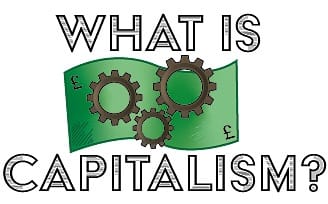Shaky Foundations: Unrest in Ecuador Offers Important Lessons for the Latin American Left
Comment Editor Andrew Melville thinks that the Premiership emphasis on corporate interests are killing the game

If you’re not totally up to speed with the situation in which Ecuador currently finds itself, I think I can find it in my heart to forgive you – in a world which seems to be in a hurry to fall into crisis of late, it can be terribly hard to keep up with it all. In any case, let me lay it down for you: On October 1st, Ecuador’s president Lenín Moreno announced a new IMF-supported austerity package to combat the country’s rising debt and to qualify for an emergency loan of $4.2bn. One particularly controversial aspect of the deal was the repealing of some 40-year-old fuel subsidies, which saw the price of diesel double overnight. In response, labour unions and indigenous groups took to the streets to demand the subsidies’ reinstatement – initially, Moreno refused to budge, and so the protests became increasingly violent, culminating in hostage-taking of police officers, the deaths of at least 8 people, and evacuation of the national government from Quito to the coastal city of Guayaquil. After 2 weeks of continuous unrest and eventual talks, Moreno finally agreed to reinstate the subsidies. A victory for the people, then – but what lurks beneath the surface?
Moreno had been right to be nervous: over the past 30 years, indigenous-led groups have been responsible for the ousting of several presidents. Despite this, the government maintained that the package was necessary to make up for years of overspending by the previous government of Rafael Correa. They said that the subsidies were costing the nation a cool $1.4bn per year, a sum which had become unaffordable. For CONAIE (Confederation of Indigenous Nationalities of Ecuador) however, this wasn’t good enough. Led by Jaime Vargas, they maintained that the subsidies are vital for the livelihoods of the poor, of whom indigenous people form a disproportionate part. In a country where the minimum wage is under $400 per month, the doubling of fuel costs impacts disadvantaged people massively.
All of this points to a substantial failing of left-wing Latin American politics. Native peoples have for years struggled under the yoke of global neoliberalism; their lands are frequently occupied by multinational corporations and their traditional societies are disrupted by an uncaring global order. For the approximately 3 million indigenous Ecuadoreans, this means being 4.5 times more likely to be impoverished. Native children only stay in school on average for half as long as their colonial-descended classmates. And yet despite this obvious systemic disadvantage, many left-wing populists of the Latin American “pink tide” have been unable to adequately deal with it. Take Correa: over the course of his 10-year premiership, his government used state oil revenues to increase spending on health, education and social programs, and as a result Ecuador saw a large drop in poverty and inequality, among other encouraging development indicators. However, his administration oversaw intense development and exploitation of natural resources and native lands, often on behalf of overseas companies. In late 2016, the lands of the Shuar people in the Amazon were literally invaded and occupied by the state military in response to their opposition to massive hydroelectric and mining developments by Chinese and Canadian firms. The local autonomous government was arbitrarily detained, and when the locals attempted to resist, the army were granted exceptional powers to put them down.
The response from supporters of Correa’s approach will say that the development provided over a billion dollars in income for the government annually, money which was then reinvested into the country for the benefit of all. But much of this reinvestment was only skin deep, and failed to properly address the deeper structural roots of inequality in Ecuador, which come as the product of decades of colonial and post-colonial historical development – a development whose characteristics are specifically Latin, and whose antagonisms are rooted in the tension between the European and the Indigenous. This failure is evident in the over-reliance of Correa’s economic plans on global commodity prices, most particularly oil. His volatile, populist leftism, while impressive in the short term, can never truly reconcile the inequalities of Ecuador because it relies too inherently on European notions of individualism, which stand in stark contrast to traditional native ways of life. For the Latin American left, then, a new way of thinking is needed, and seeds of it can be found in the works of the Peruvian thinker Jose Carlos Mariátegui. In the early 20th Century, Mariátegui saw that applying European ideas about leftism to South America was foolish, both since the continents had undergone such different developments through history, and since the germs of socialist society pre-existed in many indigenous peoples of the region. This is the kind of radical thinking necessary for the reinvigoration of the Latin leftist project - one needs only to look to the Zapatistas of Chiapas to see the successes it can produce. It’s also one that’s particularly relevant considering the current climate crisis: in the words of the Peruvian indigenous leader Hugo Blanco, “We Indians, we’ve been practicing ecosocialism for five centuries now”.
With all this in mind, we can understand the current protests in Ecuador as but one facet of a long struggle between indigenous and colonial thought in Latin America. Though the current protests have ended, the underlying tension isn’t going anywhere. Moreno must understand this better than his predecessors if he is to truly move Ecuador forwards.









